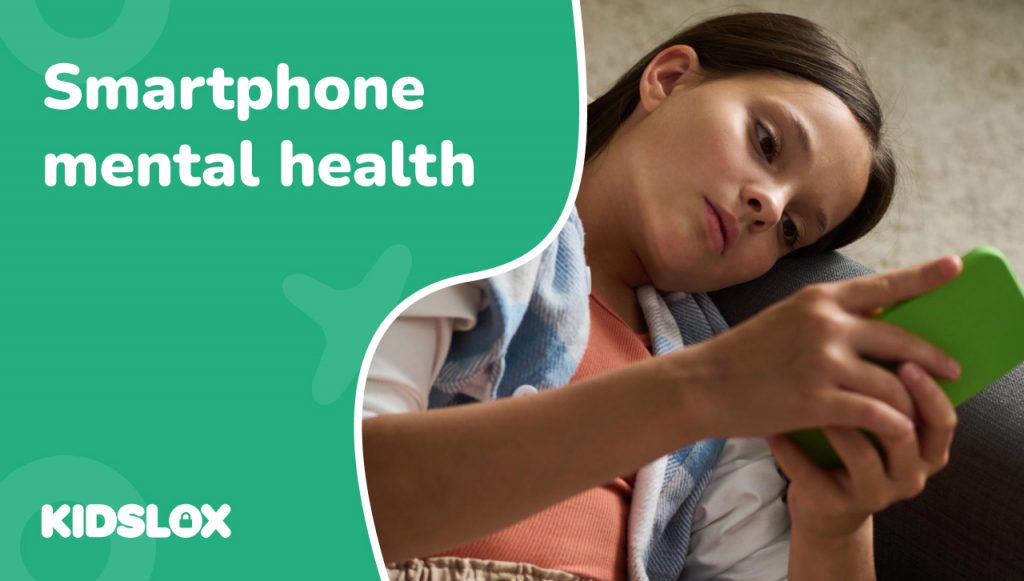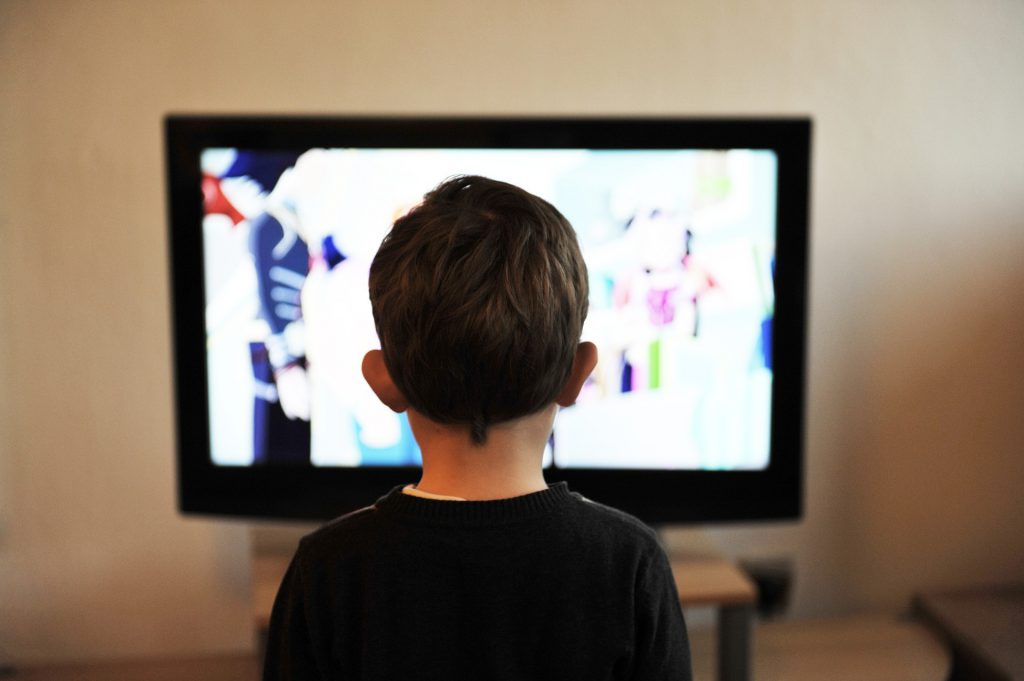Connected or cause for concern? How phones impact our mental and emotional wellbeing.
There’s no denying that smartphones have revolutionized how we live, work, and connect with others, but what about their impact on our mental health?
The overuse of smartphones has sparked growing concern about issues such as anxiety, depression, and social withdrawal. As these devices become increasingly ingrained in daily life, it’s crucial to explore the connection between smartphone use and mental health to ensure a balanced relationship with technology.
Smartphones are ubiquitous. According to recent statistics, there are over 6.8 billion smartphone users worldwide, making them an integral part of our lives. These devices serve as tools for communication, entertainment, and productivity. On average, Americans check their phones almost 150 times a day.
While their benefits are undeniable, smartphones have also led to increased reliance on digital platforms for everything from work to socialization. This dependency raises critical questions about their long-term impact, especially on mental health.
Moreover, the “always-on” culture enabled by smartphones has blurred the boundaries between personal and professional life. Notifications, messages, and updates demand constant attention, leaving little room for downtime. This constant connectivity can exacerbate stress and create a sense of urgency, which takes a toll on mental well-being.
What are the Behavioral Effects of Smartphone Overuse?
Checking our smartphones constantly can have a profound impact on our mental health, anxiety levels and our relationships. Here are some commonly found effects:
- Doomscrolling and Anxiety: Doomscrolling, or endlessly consuming negative news, has become a common habit. This behavior fuels anxiety by exposing users to distressing content without relief. Studies show that prolonged exposure to negative news can lead to heightened feelings of helplessness and stress.
- Social Media and Self-Esteem: Social media platforms often showcase curated and idealized versions of life. This comparison culture fosters insecurity and self-doubt, particularly among teens. The pressure to appear “perfect” online can lead to low self-esteem and even depression.
- Phone Addiction Symptoms: Constantly checking notifications, feeling restless without access to a phone, and withdrawing from real-world interactions are key signs of smartphone addiction. These behaviors underline the troubling link between phones and mental health, highlighting how addictive design features exploit human psychology.
What About the Emotional and Psychological Impacts?
The psychological effects of smartphone use are profound. As research deepens into the topic, parents, educators and even governments are expressing concern about the worrying patterns emerging between poor mental health and smartphone use.
- Anxiety and Depression: Studies have established a connection between excessive smartphone use and higher rates of anxiety and depression. This is especially the case for younger people and teens. Constant connectivity creates pressure to always be available, which can lead to stress.
- FOMO (Fear of Missing Out): Social media exacerbates FOMO, leaving users feeling left out or inadequate when they compare themselves to others. This phenomenon is particularly damaging for adolescents, whose sense of self is still developing.
- Sleep Disruption: Late-night screen time disrupts melatonin production, impairing sleep quality. Poor sleep has a direct impact on emotional regulation and overall mental health. Chronic sleep deprivation caused by excessive phone use can also impair cognitive function and increase the risk of mood disorders.
Additionally, smartphones often act as a digital escape, allowing users to avoid addressing their emotions or stressful situations. While this might provide temporary relief, it prevents the development of healthy coping mechanisms, further exacerbating mental health issues.
Are There Any Physical or Cognitive Effects to be Aware of?
While the emotional toll of smartphones is significant, their physical and cognitive impacts also warrant attention:
- Cognitive Overload: Multitasking on phones leads to reduced focus and memory retention. Switching between apps and tasks fragments attention, making it harder to concentrate. Over time, this can result in decreased productivity and an inability to engage deeply with tasks or conversations.
- Posture and “Tech Neck”: Prolonged phone use can strain the neck and shoulders, leading to chronic pain. Poor posture can also indirectly affect mental health by contributing to fatigue and irritability. The physical discomfort caused by “tech neck” often goes unnoticed but adds to the cumulative stress of smartphone overuse.
- Vision Strain: Excessive screen time causes digital eye strain, which can manifest as headaches, blurred vision, and discomfort. These physical symptoms not only reduce productivity but can also negatively impact mood and overall well-being.
Why Smartphones Are Particularly Harmful to the Mental Health of Children and Teens
Smartphones have become an essential part of daily life, but their impact on children and teens’ mental health is increasingly alarming. Young minds are particularly vulnerable to the negative effects of smartphone use due to their developmental stage, emotional sensitivity, and lack of self-regulation.
Here are some key reasons why smartphones are especially harmful to this demographic.
- Social Media and Self-Esteem: Social media platforms, easily accessible through smartphones, have a profound effect on how children and teens perceive themselves. They are often exposed to curated, idealized images of others’ lives, leading to unhealthy comparisons. This can lower self-esteem, foster body image issues, and even contribute to depression. The constant quest for likes, comments, and followers becomes a form of validation, leaving teens feeling inadequate if they don’t meet perceived social standards.
- Sleep Disruption: Sleep is critical for the growth and mental well-being of children and teens. However, smartphones disrupt healthy sleep patterns in several ways. Blue light emitted by screens interferes with melatonin production, making it harder to fall asleep. Additionally, late-night scrolling or chatting keeps the brain active when it should be winding down, leading to sleep deprivation. Lack of sleep directly impacts mood, focus, and emotional regulation, exacerbating mental health challenges.
- Cyberbullying and Online Harassment: The anonymity and connectivity of smartphones open the door to cyberbullying. Unlike traditional bullying, which ends when a child goes home, cyberbullying follows them into their safe spaces. Hurtful messages, exclusion from online groups, and public shaming can deeply affect a child’s mental health, leading to anxiety, depression, and even suicidal thoughts.
- Addiction and Dependency: Smartphones are intentionally designed to be addictive, with notifications, scrolling features, and gamified apps triggering dopamine releases. For children and teens, this can lead to compulsive use and a dependency on their devices. Over time, excessive screen time replaces meaningful interactions, outdoor activities, and hobbies, reducing overall well-being.
- Emotional Sensitivity and Development: Children and teens are in a critical phase of emotional and psychological development. Excessive smartphone use interferes with the development of interpersonal skills, emotional resilience, and empathy. They may struggle to process emotions healthily, relying on their phones as an escape or coping mechanism instead of addressing underlying issues.
To mitigate these risks, parents and caregivers should establish clear boundaries, encourage offline activities, and use tools like parental controls to create a healthier balance between technology and real-life experiences.
Some More Smartphone Strategies to Try to Support Your Child’s Mental Health
- Set Boundaries: Designate phone-free zones at home, such as the dining table or bedroom, to encourage meaningful interactions. Limiting phone use in these spaces can foster stronger family connections and reduce dependency.
- Practice Mindful Consumption: Use apps that promote focus and limit distractions. Avoid aimless scrolling by setting specific purposes for phone use. Practicing mindfulness during phone use can help users stay present and minimize impulsive behaviors.
- Encourage Offline Activities: Balance screen time with activities like reading, outdoor play, or hobbies that engage the mind and body. Encourage children to explore creative outlets, such as painting or sports, to reduce reliance on screens.
- Use Technology Wisely: Leverage tools like parental controls and screen time trackers to manage phone use effectively. These tools can help users monitor their habits and make informed decisions about their screen time.
- Foster Open Conversations: Discuss the impacts of smartphones with family members, especially children, to create awareness and promote balanced habits. Encouraging transparency about online experiences can build trust and help address potential issues early.
- Digital Detox Days: Schedule regular breaks from technology to reset and recharge. These detox periods can help individuals reconnect with their surroundings and reduce stress caused by constant connectivity.
- Limit Notifications: Turn off non-essential notifications to reduce distractions and create a sense of control over phone use. Fewer interruptions can help users focus on tasks and reduce anxiety.
- Promote Healthy Sleep Habits: Encourage a no-phones policy at least an hour before bedtime. Using blue-light filters or nighttime settings on devices can also help mitigate the impact of screens on sleep.
Smartphones are powerful tools that have revolutionized the way we live. However, their impact on mental health and smartphones use patterns cannot be ignored. By understanding the behavioral, emotional, and physical effects of smartphone overuse, we can take proactive steps toward healthier tech habits. It’s not about eliminating phones entirely but about finding a balance that prioritizes mental well-being.






